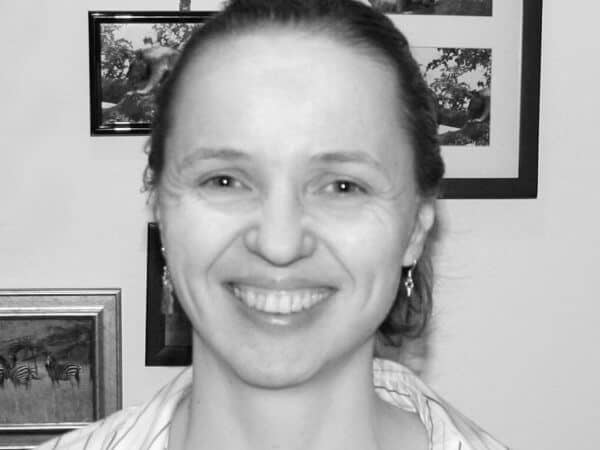For centuries, polymaths have defined the way we see the world, but are they slowly fading away? We find out.
What would have been a three-hour journey from Lille to Lyon by high speed train, turned out to be seven hours in a hired car given that the distance is almost 700km. It was soon after the financial crisis of 2008 that I had a business meeting in Lyon.
Due to protests, the trains were not running. Having a tendency to doze off while driving long distances, I’d hired a car which arrived promptly at 4.00am.
Because of the unearthly hour, I brought down two mugs of coffee, one for myself and the other for the chauffeur who was grateful for it in a nice dignified way.
Sipping on our coffee, we started on the long drive when Caroline the chauffeur asked if she could play music and which incidentally started with the famous song Je Ne Regrette Rien followed by melodies in many different languages and genres. Caroline politely asked if I was alright with it.
I said I was fine, in fact enjoying it and music really has no language, to which she said “You’re right, in fact music is probably a language in itself”. Thus began a conversation.
Not one to read and repeat, myself, I enjoyed Caroline’s views on subjects ranging from the ongoing economic situation, philosophy, food, books, travel, history, politics, existentialism and many others. Her thoughts were analytical and often quite original.
Along the way the subject of the right wing and extreme right cropped up when I said such parties appeared to have greater support of the lesser educated and her opinion was it all depends on how one defines education. Quite right actually. We often mix up literacy with education. While literacy is a matter of opportunity, true education comes from within.
Here I’d had the privilege of meeting one of the true modern day polymaths.
Polymaths: What Are They?
To cut a long story short, the drive to and fro turned out well worth it and along the way Caroline and we have become family friends. Incidentally, she was a relationship manager with a well-known bank before deciding to venture out on her own and owning a car for hire is what she chose.
Her husband Paul plays the viola for a symphony orchestra and they have one lovely little daughter Betty who is full of questions and as opinionated and a good listener as her mother. Most likely another polymath in the making.
The names have been falsified to protect their identity.
The dictionary defines polymaths as “people of great learning in different fields”. Today, in this age of specialisation it’s not easy meeting one.
Someone who will be able to speak with you across many subjects and hold your attention.
Life itself has become so fast that even specialists must continually hone up on their skills before they get left behind or even fall by the wayside. So what happens?
When architects meet they talk architecture, software engineers talk about their trade amongst themselves, bakers, butchers and truck drivers do the same. Are we getting lost in a world of algorithms and expertness? And of course blinkers.
Frequently, one is subjected to conversations where the talker has read something including current topics and puts these forth as original ideas. A typical conversation in a pub. Our politicians love these people since they will read and repeat. Free propaganda is what they get.
Thankfully there’s social media where to an extent one sees individuals communicating on different subjects. Though even here there are specialised rooms for tweets and chats.
World Renowned
Going strictly by the definition of the dictionary, let’s look at some of the renowned polymaths.
The first one that comes to mind is Johannes Kepler who lived from 1571 to 1630. He was a mathematician, astronomer and astrologer and is considered to be one of the important personalities in the scientific revolution.
He is recognised for his laws of planetary motion and the books he wrote. His works also established the foundation for Isaac Newton’s theories.
Kepler was known to incorporate philosophy in his works and eventually was associated with the famous astronomer Tyco Brahe, taught at universities and was imperial mathematician and astrologer to Emperor Rudolf II.
Incidentally, Brahe and Newton were also known to be astrologers among many other areas of expertise. So we have two more polymaths.
To name a few more one would think of Benjamin Franklin, Omar Khayyam and Nicolaus Copernicus. Certainly, there have been many others.
What Does Our Writer Think?
My personal opinion, but polymaths don’t appear to be mad about collecting financial wealth, tend to be generally peaceful and non-judgemental, empathetic, very often share their opinions from the viewpoint of adding to the personal growth of others and many things positive.
While being opinionated they are also good listeners and do not gloat about their knowledge.
If the world had many more polymaths, politicians would be philosophers as well. The health system, education, retirement benefits would not be in jeopardy, people would be less materialistic and many more out-and-out good things would be happening.
According to some, polymath is too prestigious a term to be applied to just anybody having knowledge in different or even many domains.
Opinions vary and in my view a highly knowledgeable and an interesting person constitutes a polymath. All amongst us can be polymaths and turn this into a better world.
Want more on this topic? How about this?
Support us!
All your donations will be used to pay the magazine’s journalists and to support the ongoing costs of maintaining the site.
Share this post
Interested in co-operating with us?
We are open to co-operation from writers and businesses alike. You can reach us on our email at [email protected]/[email protected] and we will get back to you as quick as we can.










